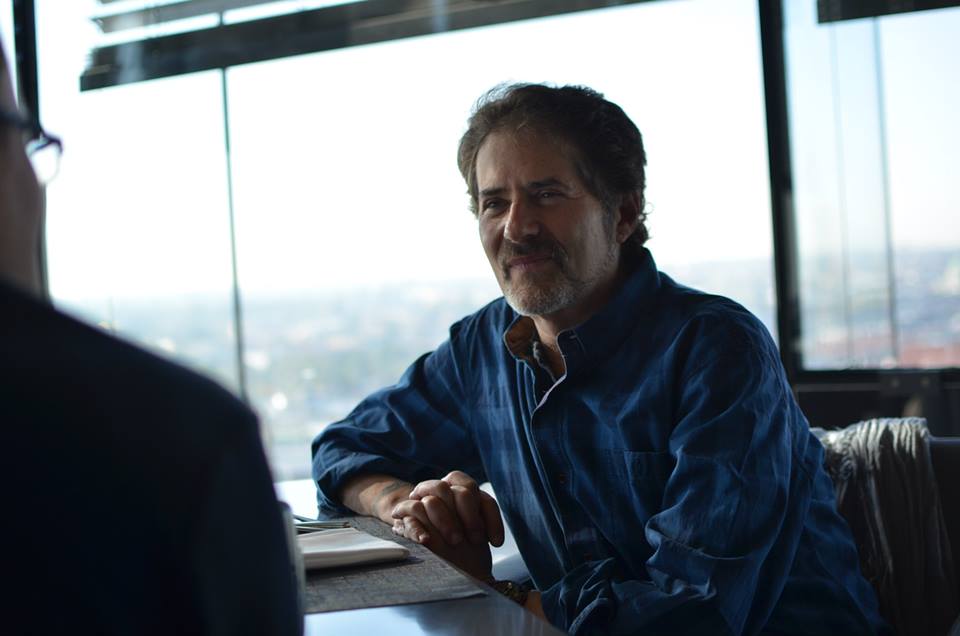Thursday, October 3, 2013.
Amidst the annual Hollywood in Vienna music event, James Horner was interviewed by Thor Joachim Haga for Celluloid Tunes and the Norvegian Web Magazine Montages.no.
Included in this very worthy hour are interviews conducted with film composer David Newman, who conducted the orchestra in the above mentioned Hollywood event, as well as the concert producer Sandra Tomek. However, the obvious highlights are the few questions asked to James Horner himself, in between actual sound recordings from the concert itself. Clips including the title sequence from the 1982 space opera Star Trek II – The Wrath of Khan, the end title sequence of the 1995 epic Braveheart, as well as clips from Aliens, Legends of the Fall, The Boy in the Striped Pyjamas and eleven sweet minutes of the Titanic Suite.
The questions asked and the softly spoken answers given allow us to delve into this man's creative abyss that is his mind, even if it is just small hints and insights into the complex thought processes and how he feels about his past work, where he currently is, and even what he plans to work on in the near future. James Horner speaks about the Roger Corman days, his relationship with master director James Cameron, his score for Aliens as well as his methodology to concerts and scoring films.
With kind permission of the author we publish three answers of James Horner. To listen to the full interview go to celluloidtunes.no
Question: A lot of composers don't like to look back and yet you see this interest in yourself, and the labels releasing your music from the eighties and I was always wondering if you see that as an honour or if you'd prefer it to be buried in the past?
James Horner: Oh that's a good question. It depends on how far back. Some films I wouldn't do now, and so some films I'd prefer if the soundtrack wasn't released now. There are other films that weren't successful but were I thought, good compositions that I do wish would be on a soundtrack that gets re-issued, but a lot of the films that were very successful and had successful soundtracks are being re-issued which is sort of interesting. I never thought there would be that kind of interest or, you know, or whether that world really existed.

Photo © Marian Schedenig
James Horner, on being asked about scoring Aliens and working with James Cameron:
James Horner: Jim and I had worked a couple of times together when he was at Roger Corman. He was an editor and a cameraman, and then he made Aliens. So I met Jim when he was a cameraman on Battle Beyond the Stars, which was a century ago. It happened to be a film that was Roger Corman's first film to be co-produced by a larger company, Orion, and it was released by Paramount, and that's how Paramount discovered me, and that was my first stepping stone, going up doing movies with them. But Aliens was, uhm, interesting because they, I think he (Jim) was under a lot of pressure to get it done in a given time frame, and he was used to doing everything himself, in a corner. And in England, all these sets were done, but everything was so slow. And I had got to England to write the score, but they were still shooting, yet alone editing, and the studio didn't really know. It all got done but I had very little time to write the score. It was a difficult assignment for me.
Question: (On The Boy in the Striped Pyjamas) What was sort of the idea behind that score on setting the scene with child-like innocence versus the darkness of the concentration camps?
James Horner: The only scene that I did darkly was at the end of the movie which was this long, long sequence. It's very intense. The rest of it was done as this Brahms-like lullaby and it was just meant to capture the period and capture the family and capture the boy, without scoring it. It was wistful, bittersweet. It wasn't meant to be 'scoring' the movie. It was meant to be thoughts of that period, and uhm, but that was really the assignment I set for myself.




